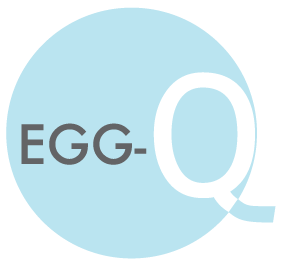A simple blood test & questionnaire helps you plan for your future.
Egg-Q combines the AMH blood test with your answers to our fertility health questionnaire. Scroll down to read more about the science behind AMH.
You will receive your results and a follow up consultation with one of our board certified doctors or nurses in about a week, either in person, over the phone, or on a telemedicine video visit. Your choice.
Right now our test is available at select Ob-Gyn offices in Miami and at Conceptions Florida. Not in Florida? We will be rolling out our test nationwide this summer. Please email us at contact@eggq.com and we will notify you when we have a site near you.
Results are easy to read and understand.
An AMH of 2.0 - 6.0 ng/ mL in women between 28 and 35 years old is normal. It can give you confidence that for the next several years your fertility is about average- or about a 20% chance per month of getting pregnant. It is also the best time to freeze your young, healthy eggs.
An AMH of 1.0 - 2.0 ng/ mL for women under 35 is lower than expected, and should be looked at closely by you and your fertility doctor.
An AMH lower than 1.0 and lower than .5 in particular, requires immediate attention to recruit and retrieve eggs as quickly as possible. While it is certainly possible to get pregnant with AMH levels under 1.0, the chances are very low naturally. A test under 1.0 means it will generally take longer and more treatment cycles for women who opt for IVF, and the risk of miscarriage is substantially higher.
In general, the higher the AMH the better. However, for any woman with an AMH above 4.0 ng/ mL a more careful examination is required to rule out PCOS (Polycystic Ovarian Syndrome). PCOS is a leading cause of infertility and can cause weight gain and excessive hair growth among other problems.
“It is best for women to consider egg freezing well before their AMH levels get under 1.0. And the best predictor of a low AMH is age. So check yourself early!”

